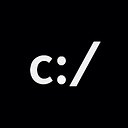University coordination in connected societies
Post published by Daniel Domínguez and José F. Alvarez at UniverSIdad on 8th February 2016, in the context of a broader discussion on the future of higher education. A Spanish version of the text is available here.
In 2014, we coordinated an special issue of Cuadernos Hispanoamericanos (769–770, 2014) about the Ibero-american University in the twenty-first century. In that volume, we have the participation of leading experts who contributed with their views on the current state and evolution of the university from very different optical. To summarize, we can say that there are many issues on which we can agree to improve our universities and to be effective it is necessary to explicitly recognize that the digital transformation of society will affect in particular inevitably on academia, to their functions and their mission.
Recently, we talk quite often about the new connected reality as a cause of the change of the production model and consequently, the need to adapt our ways of doing and our institutions. In the case of universities it would be wise to consider the context and the profound transformation in the construction and access to knowledge. For this reason, it is appropriate to move forward with proposals that encourage structural changes already on the horizon, beyond the rhetoric of innovation.
The origin of universities comes from the need of having a specific and exclusive place where academia could generate, maintain, certify and disseminate knowledge. Nowadays, this is undergoing on profound changes in social, technological and cultural which modify the current term and put the academy into a new scenario. The changes are related to the willingness to the open, the universal and the minimum cost of access to places that generate learning and collaborating to create new knowledge, provided by a digital transformation that affects our way of production, distribution and consumption of goods. On the assumption of situations that built the current and future academia, we can identify the open revolution as a first agent of innovation. We expose some actions that seem to be imminent for an expansion and improvement of the current university.
The generalization of free universal access to educational resources, the availability of public funded research and free data access are some of the pattern built and widened from the openness. In this sense, it seems indispensable for academia move forward and participate in international coordination processes and implementation of open learning resources challenge, and the most varied documents and research results. For example, it can be considered as a key to participate in the movement of OER, expanding initiatives as Open Education Consortium, in the first experience with open courses or, more recently, connected playlists designed to create a learning network that involves both educational institutions and informal learning spaces and businesses.
With this simple approach we might advance to a new way of understanding cooperation of universities (among themselves and with their target) that, even if they had a traditionally strong competitive nature, need to move forward to an intense cooperative activity. In this particular moment where globalizing trends to emphasize unique models in which the winner it takes all, rather it sets multi-centric models with powerful cooperatives roots.
In spite of the transformation in universities are very profound nature and goes beyond the open and universal access to information, it must include changes to the monopoly of certification and accreditation of knowledge as well as a shift in the structure of predefined training paths.
The movements of opening the certification of knowledge and experiences (for example, the movement of badges), the awareness of the skills rather than the studies and qualifications are changes that are just starting out but that demand careful reflection. Only thereby the Yes to universities is not a simple expression of a wish, but the definition of practical ways to to tune academia with the society that sustains and lives.
On these other movements, which are made possible by the socio-technological transformation that is bringing us closer to a society of interconnected individuals, it might be interesting to keep talking.

